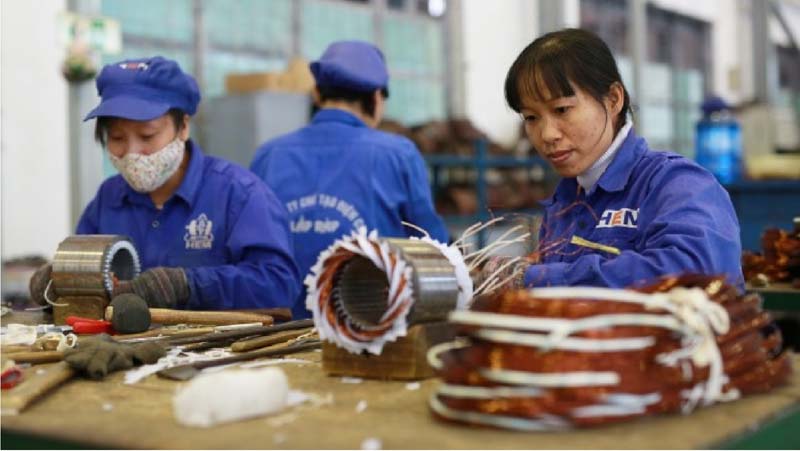



The number of new jobs created by newly registered enterprises has tended to reduce (illustrative image)
In the first four months of 2018, the country witnessed more than 52,700 enterprises registering to establish or resume their operations, 1.7 times higher than the total number of enterprises dissolved or suspending operations. The figures in the corresponding period in 2017 were 51,000 enterprises, 1.62 times higher than the total number of enterprises that were dissolved or suspended operations.
Meanwhile, the number of enterprises registered to establish or resume their operations in the same period in 2016 was 46,052 enterprises and in 2015 34,551 enterprises, 1.59 times and 1.55 times higher than the total number of enterprises that were dissolved or suspended operations in 2016 and 2015 respectively.
The size of newly registered enterprises also surged rapidly with the average registered capital of a newly established enterprise in the first four months of 2018 at VND10 billion (US$440,000), up 6.8% over the same period in 2017. The figure for the same period in 2017 was VND9.3 billion (US$409,200), up 30.9% over 2016, while the figure in 2016 was VND7.1 billion (US$312,400), up 24.2% over 2015. The average registered capital of a newly established enterprise in the same period in 2015 was only VND5.7 billion (US$250,800), up 1.8% compared to 2014.
Contrary to the trend of increasing their capital size, the number of new jobs created by newly registered enterprises has tended to reduce. The total number of labourers registered by newly established enterprises in the first four months of 2018 was 332,100 people, down 21.7% over the same period in 2017. The corresponding figure in the same period in 2017 decreased by 0.8% compared to 2016 and in the same period in 2016 the figure fell by 0.2% compared to 2015. The figures calculated for an entire-year period in the past few years have also shown a similar trend.
The improvement in the number and percentage of enterprises registered to establish or resumed operations compared to the number of dissolved enterprises has demonstrated the efforts of the whole business community, in addition to the effective action from the authorised agencies and the government in enhancing the investment environment and easing difficulties for enterprises.
The fact that the average size of enterprises has constantly increased in parallel with the decreasing number of employees also shows an improvement in the technical structure and competitiveness of enterprises, while forming the prospects for restructuring the economy toward the direction of reducing labour-intensive sectors to shift to business models of sustainable development factors.
However, the recruitment of fewer labourers despite the increases in both the number and size of enterprises also reveals another worrisome trend: the pressure of unemployment, which will continue to be a burden for society if there are no appropriate measures deployed by stakeholders.
The fact that a garment firm in a southern province imported four automated garment lines to replace its 200 employees in order to enhance the firm's automation and competitiveness is also evidence of the pressure of training, retraining and maintaining jobs for the manual labour force (especially those over 35 years old). The requirement is becoming more urgent amid the fierce competition in the context of the industrial revolution 4.0.